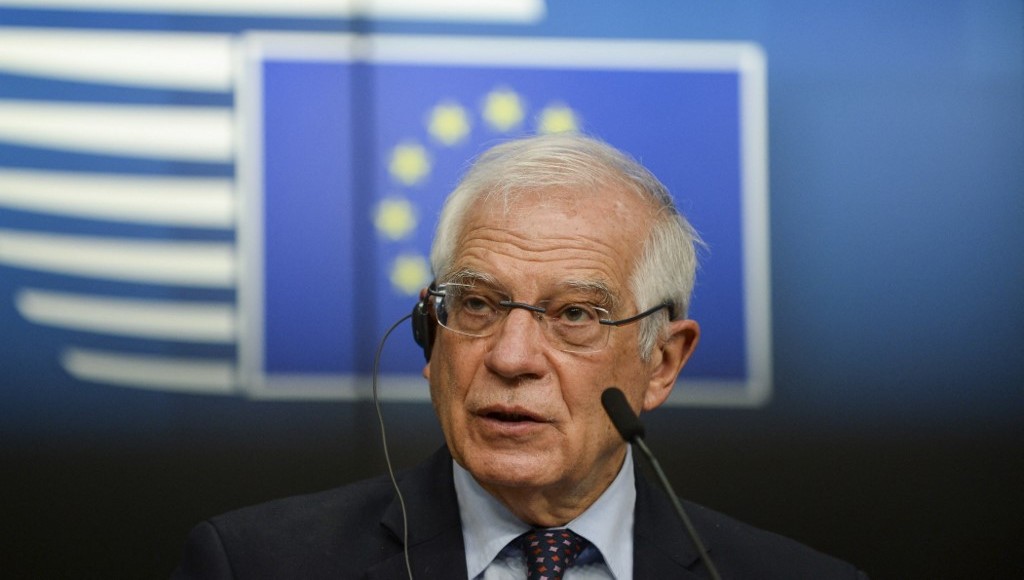EU foreign policy chief Josep Borrell has told Turkey in a letter to Foreign Minister Mevlüt Çavuşoğlu that its overflights above the Greek islands are an unnecessary escalation and do not help the de-escalation of tension between the two neighbors, the Greek daily Kathimerini reported on Tuesday, citing diplomatic sources.
According to the daily, Borrell’s letter sent a few days ago was in response to a recent letter sent by Çavuşoğlu, who accused Greece of being more or less responsible for the recent tensions in Greek-Turkish relations.
Historic rivals while also fellow members of NATO, Turkey and Greece have been at odds over issues ranging from overflights and the status of Aegean islands to maritime boundaries and hydrocarbon resources in the Mediterranean, as well as ethnically split Cyprus.
Borrell reportedly said that the overflights over Greek territory and statements that question Greece’s non-negotiable sovereignty over the Aegean islands as well as the escalation of hostile rhetoric against Greece and the Greek people are moving in the opposite direction of de-escalation.
Moreover, he added, “They create a negative dynamic from which there is no benefit.”
In his letter Borrell also reportedly referred to the need for the delimitation of the exclusive economic zone (EEZ) and the continental shelf through dialogue and full respect for international law and the UN Convention on the Law of the Sea, but he also referred to recourse to the International Court of Justice in The Hague as one of the ways to peacefully resolve the existing disputes.
The state-run Anadolu news agency recently reported that a letter signed by Çavuşoğlu that addresses Turkey’s long-standing disputes with Greece over the Aegean Sea was sent to representatives of the European Union, the United Nations and NATO on Sept. 1.
In the letter Çavuşoğlu accused Greece of engaging in “unlawful actions” and making “maximalist demands” in the Aegean, Anadolu said, adding that he listed a number of “problems” in the Aegean Sea, including “the width of the territorial waters and national airspace, the limitation of the continental shelf and territorial waters and the violation of the non-military status of the Eastern Aegean Islands.”
Turkish President Recep Tayyip Erdoğan attracted criticism from not only Greece but also the EU and the United States when he earlier this month accused Greece of occupying demilitarized islands in the Aegean and said Turkey was ready to “do what is necessary” when the time came.
As Erdoğan prepares for what is shaping up to be the biggest electoral challenge of his nearly 20-year rule in 2023, he has stepped up his rhetoric on foreign policy, with many associating it with his desire to attract nationalist voters.


